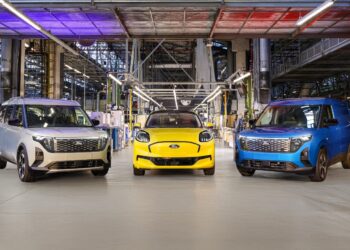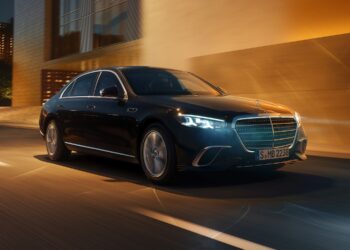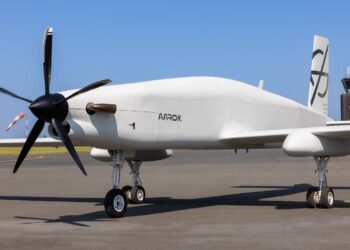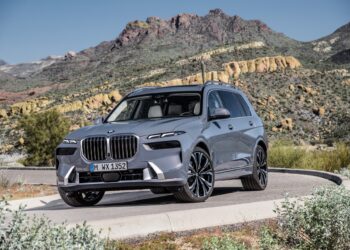In a bold move that defies long-standing expectations, Ferrari has unveiled its new flagship hypercar, the F80, a successor to the legendary LaFerrari. But in a twist that has left traditionalists gasping, Ferrari has opted to power this beast with a downsized V-6 hybrid engine, eschewing the iconic V-12 that has long been the crown jewel of the Maranello automaker.
Yes, you read that right—Ferrari has sliced its cylinder count in half for its most elite machine, and they’re standing by that decision. Speaking to Auto Express, Ferrari’s Chief Marketing & Commercial Officer Enrico Galliera defended the radical move, stating, “We asked the question of whether we were going to use the most iconic engine [the V-12] or the highest performing [the V-6], and decided to take the highest performer.” In short, Ferrari claims they didn’t want the most sentimental choice—they wanted the best performer. And they’re convinced that the V-6 hybrid delivers.
This marks a significant shift in Ferrari’s strategy. Just last year, Chief Design Officer Flavio Manzoni was singing a different tune, defending the decision to stick with naturally aspirated V-12s for models like the 812 Superfast. At the time, he claimed that while a V-8 turbo might boost performance, the raw emotional experience of a V-12 couldn’t be matched. Clearly, Ferrari has changed its mind.
Aside from ditching the V-12, the new F80 won’t be a plug-in hybrid or fully electric vehicle either. Ferrari has concluded that a hybrid V-6 is the “best technical solution,” pushing the limits of their engineering without fully diving into electrification just yet. So, if you’re holding out for Ferrari’s first electric vehicle, set your sights on 2025—just don’t expect it to be a hypercar. Recent spy shots show the company’s inaugural EV testing in a Maserati Levante body, hinting it’ll be more of a practical, high-end model with synthetic engine sounds rather than a groundbreaking hypercar.
But despite the gasps from purists, Ferrari has no trouble finding buyers. Even with its controversial V-6 engine and a jaw-dropping price tag of €3.6 million ($4 million), all 799 units of the F80 sold out long before its official debut. It seems that when it comes to Ferrari, even a drastic departure from tradition won’t stop the ultra-wealthy from signing up in droves.
For those still dreaming of a V-12 experience, Ferrari has left the door open. The 12Cilindri and upcoming models in the Icona series—like the Monza SP1/SP2 and Daytona SP3—will keep the naturally aspirated V-12 alive for now, catering to the brand’s more nostalgic clientele.
As Ferrari’s F80 joins the hypercar ranks alongside the McLaren W1, the world is eagerly awaiting the final member of the “Holy Trinity” reboot. Porsche’s 918 successor is still a mystery, but given the fully electric Mission X concept, the German automaker may go all-in on an electric future.
The F80 represents not just a new chapter for Ferrari, but a seismic shift in the world of hypercars—one that challenges old assumptions about what defines automotive greatness.










